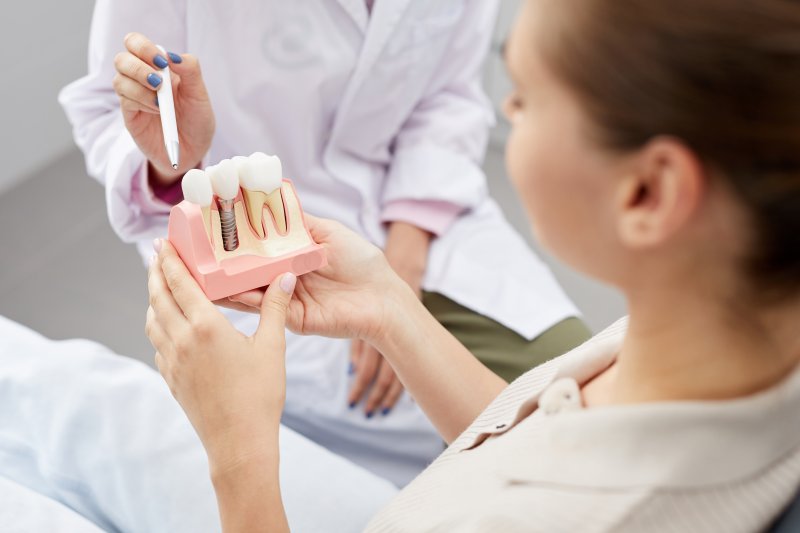
No matter the type of oral surgery, the most common question asked by patients is, “Will it hurt?” Fortunately, advancements in dentistry have made it possible to provide individuals with new solutions to minimize and even eliminate pain throughout a procedure. As you prepare to replace your missing teeth with dental implants in Mt. Holly, a local dentist shares what you can expect and why the process of receiving these permanent prosthetics is much more comfortable than you might think.
How Are Dental Implants Placed?
If you’re unsure how dental implants are put into place, the process is actually quite simple. Your dentist or oral surgeon will make one or more small incisions in your gums to expose the underlying bone. Gently placing each implant into the appropriate areas throughout your jawbone, they will be angled to ensure maximum support for your customized restoration.
Once these implant posts are firmly in place, your dentist will close the gum tissue surrounding the implant and send you home to begin the recovery phase of treatment. After several months (3-6), the implants will fuse with the bone and surrounding tissue to create a firm foundation. After metal abutments are placed, your custom restoration (i.e., crown, bridge, or denture) will be secured into place.
Will Dental Implant Surgery Hurt?
One of the benefits of receiving dental implants is that the actual surgery does not cause any pain whatsoever. The reason you can feel more at ease when preparing for your appointment is that your dentist will start by administering local anesthesia. This will effectively numb the area around your vacant socket so that you will not feel any pain when the dentist makes the initial incision and places your implant into the jawbone.
The anesthesia numbs the nerves that are responsible for triggering discomfort. Although you might feel some slight pressure during the procedure, you should feel no pain at all.
Ways to Minimize Discomfort During Recovery
After your procedure is complete, it is normal to feel some soreness, tenderness, and discomfort after the anesthesia wears off. Fortunately, this should only be temporary and can be remedied with the help of an over-the-counter pain reliever. Your dentist will go over helpful tips and recommendations to ensure a successful recovery, but some you might begin to consider now include:
- Eating soft foods in the days following your implant surgery will prevent additional pressure from being placed onto your surgical sites.
- Being mindful when brushing around your implants while they heal.
- Taking any prescribed or over-the-counter medication as prescribed.
With the help of modern medicine and a trusted dental expert, you can expect your dental implant surgery to be a breeze. Even while recovering at home, any discomfort you experience should be minimal, resulting in a successful placement and bright future with a healthy, more youthful smile.
About the Practice
At Mt. Holly Family Dentistry, our dentists take the time to get to know every patient. By answering questions, personalizing treatment, and addressing any concerns or fears, we can establish a welcoming and inviting environment for everyone who walks through our doors. Offering dental implants as a way to replace missing teeth, our team partners with local oral surgeons who will take all the necessary steps to safeguard your smile and ensure your comfort during your procedure. If you are concerned about any part of your upcoming implant surgery, visit our website or call (609) 267-3230.
